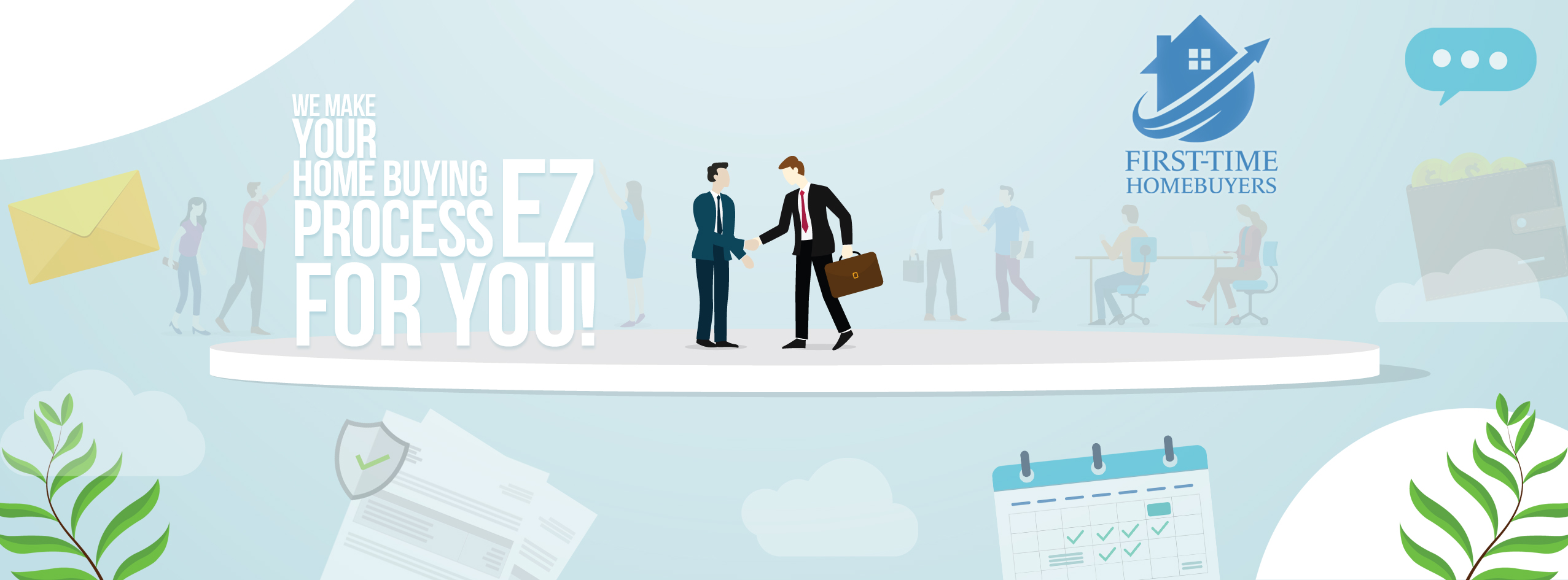First-time Home Buyer

Are you a first-time home buyer? Don’t know where to begin with and which first time homeowners loan to choose? Then continue reading as we provide you with complete details about:
- First-time Home Buyer Loan programs
- Income and Qualification Requirements
- Best First-Time Home Buyer tips

Get your copy of the First-time Home Buyer Guide for FREE.
Click here.
First-Time Home Buyer Programs in California
If you thought that living in the Golden State means saving tens of thousands of dollars for a down payment or perfect credit to become a homeowner, then you might want to think again. The good news is that the residents of California have numerous loan programs to achieve their dream of buying a home. Loan programs include but are not limited to:
CalHFA Conventional Loan Program
Buying a home for the first time is easy with this loan program. It has a low down payment and a 30-year loan term. Requirements include:
- A credit score of a minimum of 660
- 43 percent or lower DTI (debt-to-income ratio)
- First-time home buyer status
- Completion of a home buyer education course
- Down payment is as low as 3 percent of the home’s value.
CalPlus Conventional Loan Program
CalPlus conventional loans include the same features as the CalHFA program; however it has more additional benefits, which helps first-time home buyers to finance closing costs with a zero-interest loan.
However, this loan is offered in conjunction with the CalHFA ZIP (Zero Interest Program). Therefore, you can pay for the closing cost using ZIP as the borrower. This further enables you to get a loan equal to 2 percent or three percent of the mortgage amount.
The interest rate is zero percent, while payments through the life of the loan program are deferred. Requirements include:
- A score of a minimum of 660
- 43 percent or a lower debt to income ratio
- First-time home buyer status
- Home buyer educational course completion
FHA Loans
This is yet another way to finance your homeownership dream. Down payment is only 3.5 percent, and the credit score requirement is a minimum of 580. Hence, through this government loan program, even buyers with less than perfect credit can afford a home. To learn more about FHA loans, please click here…
Eligibility for a Loan- Who Qualifies and What Income is recognized?
No lender will qualify a potential home buyer if they have a high risk of default. Therefore, there is a criterion determining the eligibility for a loan in terms of who qualifies and what income is recognized by the lenders.
Mortgage lenders are likely to accept those borrowers who:
- Are employed and receiving W2s that show at least 2 years work history (full or part-time)
- Are self-employed (have filed Schedule C (receiving 1099) or own a corporation) but they must show 2 year taxes
- Receive social security income, or pension
- Receive child support and alimony. However, the borrower must prove that they will continue to receive it for the next three years.
- Can show taxes on capital gains for over the last two consecutive tax years
First Time Home Buyer Tips
Here are some tips from our experts to make home-buying simple and avoid possible mistakes:
Get a Pre-Approval
First things first, get a mortgage pre-approval. It gives you peace of mind and helps increase your chances of securing your dream home. A pre-approval letter:
- Shows how much you can borrow or what you can afford
- Guides your budget
- Helps tailor your search for homes within your price range
- Shows the sellers that you are serious about the purchase
When you get a pre-approval letter, make sure it is fully underwritten to avoid potential issues later. This letter assures the seller that your information is verified which further increases your chances of securing the purchase.
Start Saving Money Early for Closing Costs and Moving-In Expenses
Make sure to start saving early. You can do this by slashing unnecessary or impulsive expenditures and creating a budget to help reach your target. This is much needed because studies show that it takes nearly 6.5 years for an average first-time home buyer in America to save for a 20 percent down payment. So, we say start your savings in advance. Cut back on expenses and put those funds in a brokerage or high-yield savings account.
Strengthen Credit
A good credit score can provide more financing choices and lower interest rates or premiums. So, if you want that, focus on strengthening your credit from today. Lenders want to see stable credit. Therefore, avoid racking up credit card debt or opening new accounts. Review your credit reports for inaccuracies, errors, or wrong information. Get them fixed to restore your credit and ensure you have the ideal score to qualify for the loan program.
Avoid Additional Liabilities
If you are vested in buying your first home, avoid incurring additional liabilities like purchasing a car or taking out a personal loan. Stay focused. Don’t be tempted. All of this can wait till you become a first-time home buyer.
Choose an Experienced Lender
Work with a team that has the experience and expertise in working with first-time home buyers and can provide you with quality guidance and step-by-step assistance in achieving your goal.
Get a Real Estate Agent
Though it is possible to buy a home solo, it is not recommended when it is your first time. Work with a seasoned local real estate agent who can help vet neighborhoods, schedule home tours, negotiate, draw up contracts, etc.
So, if you wish to enjoy a hassle-free home buying process, contact us. We can provide you quality assistance from start to finish. In addition to many first-time home buyer loan programs there are also numerous down payment assistance programs. We can help you navigate through them too. These can significantly minimize the up-front cost of purchasing a home.


